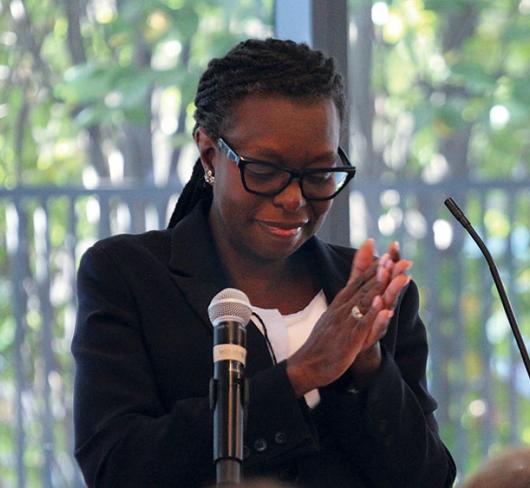Grading the Liberal Government’s Education Agenda (Queen's Park Update)
The Liberal government has passed the halfway mark of its second term. With less than two years before the next provincial election, will its record allow Premier Dalton McGuinty to retain his “Education Premier” moniker and secure re-election for a third term? Education issues played a key role in past Liberal victories. In 2003, the party campaigned on restoring labour peace in education, undoing the Harris government’s catastrophic cuts to school board budgets, and respecting teachers. In 2007, Progressive Conservative Party leader John Tory’s proposal to fund faith-based schools gave the Liberals an issue to campaign against. The current set of education policies working their way through Queen’s Park is a mixed bag. ETFO has achieved some important gains and continues working to ensure the voices of educators are heard in the early stages of policy development.
FULL-DAY KINDERGARTEN
In October the government announced their plan for full-day kindergarten, which ETFO supports and worked hard to shape. The decision came almost two years after the appointment of Dr. Charles Pascal as the Early Learning Advisor and several months after the release of his report. The Pascal report, released in June, presented a bold vision for children’s services that went far beyond the original Liberal campaign promise for full-day kindergarten. The recommendations reflected ETFO’s key policies with the exception of the staffing model: Pascal proposed limiting teachers to a half-day in each kindergarten classroom.
In response, ETFO conducted a public opinion poll that reinforced what past research has shown: nine out of 10 Ontarians think it’s important that full-day kindergarten programs be delivered by certified teachers. We also made the case that limiting teachers to a half-day would undermine their ability to effectively assess and report on student progress. Ultimately, the government agreed. Recently Education Minister Kathleen Wynne was asked by TVO television host Steve Paikin why the government went with a teacher-led staffing model. She replied that it was the best pedagogical model.
THE LIBERAL ACCOUNTABILITY AGENDA
When the Conservatives were in power (1995-2003), teacher federations were confronted by a series of simplistic policies implemented in the name of increasing accountability. These included provincewide student testing, teacher recertification, the teacher qualifying test, and the elimination of five professional activity days. The Liberal government repealed most of the Tory education policies that ETFO had lobbied against, but it has adopted its own accountability agenda, one that causes us some concern.
EQAO TESTING
The Liberals have made some positive changes to the EQAO tests, but the tests continue to make it difficult for teachers to provide a balanced curriculum that goes beyond the basic literacy and numeracy focus. ETFO has opposed the tests since their introduction. We have pointed to the original recommendations from the 1995 Royal Commission on Learning that called for a sample- based testing program designed to be a check on the system, not to evaluate individual students. The government’s unrealistic political objective of having 75 percent of students meet or exceed the Level 3 standard is creating pressure on schools. With the incessant push for classroom-based data, teachers don’t have time to absorb the information and apply it to their teaching and assessment strategies. The government is persisting with this emphasis at a time when other jurisdictions — like the United Kingdom and Alberta — are backing away and cancelling a major portion of their standardized tests. Ontario is also pursuing its policy in the face of growing criticism from the academic community and provincial parent organizations.
SCHOOL INFORMATION FINDER
The School Information Finder is an ill-conceived government website that profiles each school’s EQAO results along with demographic data on income levels, parent education, and the number of immigrants living in the community. The website, launched in the spring, encourages school- by-school comparisons based on EQAO results and is another example of a skewed accountability agenda and a misuse of EQAO data. The organizations that form the minister’s stakeholder consultation group, including all of the parent organizations, overwhelmingly oppose it.
LOCAL GOVERNANCE LEGISLATION
The latest accountability policy is Bill 177, the Student Achievement and School Governance Act, 2009. The bill proposes to clarify the responsibilities of school boards, trustees, board chairs, and directors of education. The intent appears reasonable but, if passed, the bill will give the government expanded regulatory power over boards. Of specific concern is a future regulation that may let the government take a board over if its students fail to meet certain achievement levels. While the Minister of Education insists this authority would be used only on rare occasions, it has the potential to seriously undermine local governance. Furthermore, future governments could use the authority in far different ways.
THE POSITIVE SIDE OF BUDGET PRESSURES
Given Ontario’s financial deficit, the decision to proceed with full-day, everyday kindergarten was a bold and positive move. The program promises to boost student development and academic success over the longer term. This investment stands in contrast to the millions spent on the so-called accountability measures. In the context of limited resources, the time is ripe to cut back on these initiatives and focus on investing in programs that truly contribute to student learning.
The next provincial election will take place in the second year of the five-year roll out of the kindergarten program. The government is probably right in banking on this popular initiative to boost its re-election chances. If it were to reconsider its problematic accountability measures, it would stand a better chance of winning the support of educators and parents and of retaining the political capital it has earned with its earlier education reforms.

